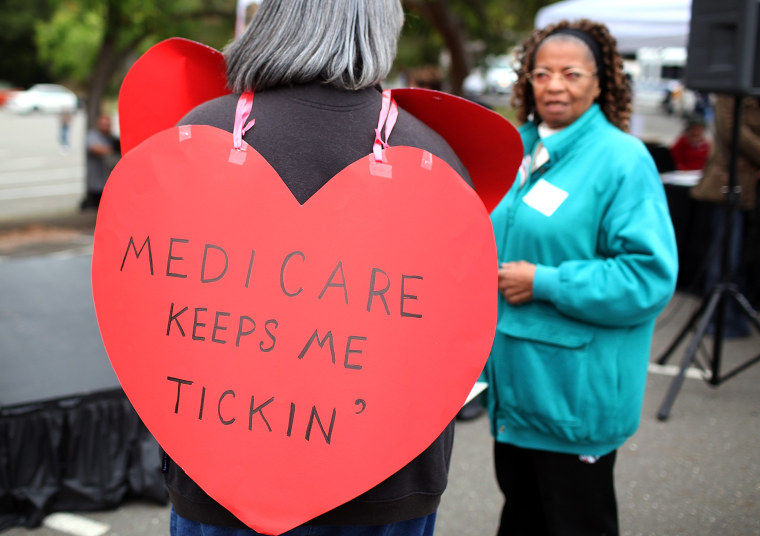Given the recent difficulties in the Affordable Care Act's rollout, it's only natural to compare it to the rollout of similar domestic policies along the same scale. It matters that parts of "Obamacare" have stumbled, but to appreciate the fuller context, it's worth appreciating that Social Security, Medicare, and even Massachusetts' health care reforms in 2006 all struggled out of the gate.
But perhaps no point of comparison is more salient than the one to Medicare Part D. If the Affordable Care Act is one of President Obama's domestic-legacy accomplishments, Part D is near the very top of the same list for George W. Bush.
And when the Part D policy first went into effect, it was a disaster. As Ezra Klein recently explained, "Computer systems didn't communicate with one another. Seniors were confused. Some of the poorest and sickest enrollees ... weren't able to get their drugs." By 2006, Bush was so embarrassed by his fiasco, he left the policy breakthrough out of his State of the Union address.
At the time, congressional Republicans went out of their way to overlook the Bush/Cheney troubles, making excuses, pleading for patience, and doing their very best to defend the disaster -- in stark contrast to now. Jon Perr goes a step further, reminding us of this gem from 2004.
The Bush administration illegally withheld data from Congress on the cost of the new Medicare law, and as a penalty, the former head of the Medicare agency, Thomas A. Scully, should repay seven months of his salary to the government, federal investigators said Tuesday. The investigators, from the Government Accountability Office, said Mr. Scully had threatened to fire the chief Medicare actuary, in violation of an explicit provision of federal appropriations law.
For those who don't recall the controversy, the Bush/Cheney administration provided Congress with a price tag for the Medicare Part D legislation. The White House deliberately hid the actual costs from Congress, and threatened to fire officials within the administration who told lawmakers the truth.
It was corruption on a fairly brazen level, even by Republican standards. The Bush/Cheney team covered up the truth, on purpose, so Congress wouldn't know the actual cost of one of Bush's top legislative priorities. Making matters slightly worse, the non-partisan GAO also discovered that the Bush/Cheney administration misused tax dollars on "covert propaganda" to get the American public to like the policy.
In other words, Bush's signature domestic-policy accomplishment was approved after the Republican White House deliberately withheld the truth from their own allies in Congress, then the Bush White House misused public funds for promotion, then the Bush White House failed to roll out the policy properly.
All the while, congressional Republicans said nothing -- no calls for anyone's resignation, no votes on repealing the law, no demands for apologies or ritual humiliations. Democrats, meanwhile, never made any effort to sabotage the law, and even helped implement it after the 2006 midterm wave that swept them into the congressional majority.
Keep this in mind as the anti-Obamacare apoplexy continues to unfold.
